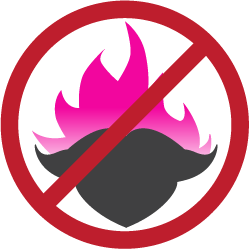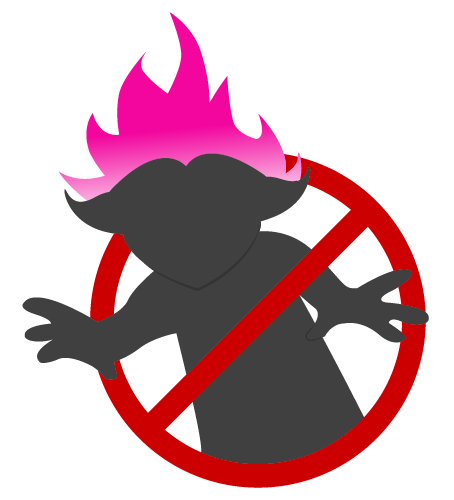



You might think trolls only lurk in the dark corners of the internet, but you’ve probably encountered them without realizing it. Trolls will disrupt any conversation or forum they can find. Trolls are always going to find a place to troll

The Internet is a global community capable of educating mass audiences and facilitating healthy critical discourse on major cultural topics. This is a tool which is capable of perpetuating the betterment of humanity.
However, the web suffers from a pest problem; there are users who seek to poison the internet through the spread of misinformation and anger. These malicious users are called Trolls, as they hide within a community attempting to pose as one of its responsible and dedicated members before exploiting any topic or information capable of fetching an emotional response from other users. They seek to disrupt, destroy, and dismantle any chance of coherent conversation between community members. Some might say this is a victimless crime, just a normal part of using the internet, a price we all must pay for accessing the content and having the conversations we want. They also used to say that about bullying in schools.
"The trolling behaviour tend to fade away once they realize that they cannot garner a reaction..."
Often, trolls seek attention out of boredom, vengeance, pleasure or to damage the (online) community. What differentiates trolling from cyber bullying is the “pointless” disruption they cause, as they often, to an extent, target their victims indiscriminately. The trolling behaviour tend to fade away once they realize that they cannot garner a reaction out of certain groups or individuals, while their behaviour may increase as they feed off those who do give them attention.
The problem with trolling is that it often escalates very quickly from simply annoying to genuinely malicious behavior, and even to hate speech and legitimate threats. The worst part of this is that the more severe crimes are still justified as “just trolling”, and pushed aside.
There are 6 factors that speculate what may motivate an otherwise civilized online user to become a troll; these factors together make up what psychologist Jon Suler calls the Online Disinhibition Effect:
Most trolls are quite visible once they’ve become active within a community’s forum; their comments quite often designed to purposely cause chaos and elicit emotional or fury driven replies from serious members of a community. The following is a list of characteristics of a troll:
When dealing with these viciously antagonistic internet users, it is important to remember that any feedback you give them, whether it be negative or positive, empowers the troll and encourages it to continue abusing users. The best doctrine is a cold shoulder in these situations; throw the troll into a cage of communication quarantine and starve it out.
The first step to caging your troll is to be educated. Learn the identifying characteristics above so that when somebody attempts to troll within your community, you are immediately aware of their purpose. If you do unfortunately find someone trolling a community, don’t take anything they say personally and remember these tips:
Do not communicate with the troll, your attention is their nourishment.
Responsibly use the website's ‘Report User’ function if one is present.
Discourage others from falling into the troll's trap.
Why do some people find so much pleasure in harassing others online? A study done by Erin Buckels at the University of Manitoba examines the type of people who enjoy trolling on the internet. The study revealed that trolls are, in real life, “more likely to have narcissistic, Machiavellian, psychopathic, and sadistic personality traits.” Read more...
Twitter has introduced an in-tweet ‘report abuse’ button. Will you use it? In 2013, Twitter responded to users who demanded that they include a way to report abusive tweets. This is one example of a platform giving users tools to protect themselves from trolls online. Read more...
Changes mean video creators will have more power to moderate comments Changes mean video creators will have more power to moderate comments Anybody who has spent time on YouTube has seen the nastiness that can crop up in the comments section. In late 2013, the video service rolled out tools for video creators to better control the discussion that appears under their content. Read more...
In August 2013, the Popular Science website turned off its comments. “As the news arm of a 141-year-old science and technology magazine,” they said they were committed to encouraging lively, intellectual debate, but that trolls had largely compromised their ability to do so. The decision to turn off the comments was made after multiple studies had been done that showed the negative impact of trolls. Read more...
Watch a video from College Humor about the dangers of trolls.
Find out more about Jon Suler's research about the Online Disinhibition Effect.
News article on Erin Buckel's research regarding the correlation between trolling and the Dark Tetrad of personality.
This website and all its content was created by University of Calgary Students as part of a senior level Communications Studies course.